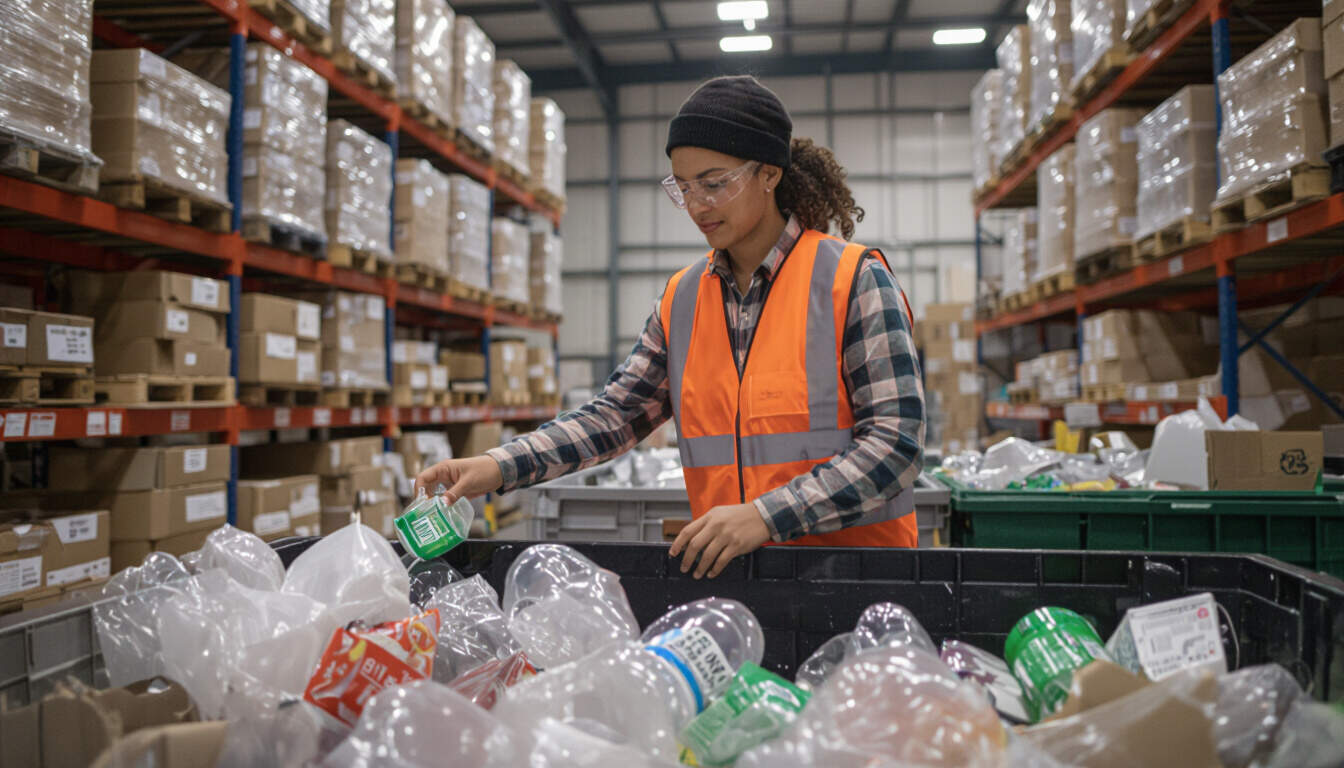Profitable Recycling Business Ideas
 by Shanie Goodwin
by Shanie Goodwin
Discover practical ways to launch a recycling business and generate income while promoting sustainability. From collecting materials to processing waste, learn how everyday people can turn environmental efforts into financial gains, with real steps for success.

Recycling offers a pathway for individuals to build businesses that benefit both the environment and their wallets. Many people see recycling as a way to address waste issues while creating steady income streams.
Starting with simple ideas can lead to substantial growth. For instance, one common approach involves collecting and selling recyclable items like bottles and cans. This method allows entrepreneurs to begin on a small scale, perhaps by partnering with local communities or events.
In the area of plastics, opportunities abound for turning discarded materials into valuable products. Entrepreneurs might focus on gathering plastic waste and processing it into pellets for manufacturers. This not only reduces landfill use but also opens doors to partnerships with larger companies seeking sustainable sources.
Another idea centers on metal recycling. Scrap metal from old appliances or construction sites can be collected and sold to recycling centers. The demand for metals like aluminum and copper continues to rise, making this a reliable option for generating profits.
Paper recycling presents yet another avenue. Businesses can collect used paper from offices and homes, then bale and sell it to mills. With the ongoing need for eco-friendly materials, this sector provides a steady market for those willing to organize collection systems.
E-waste recycling is gaining attention as technology advances. Old electronics contain valuable components that can be extracted and reused. Starting an e-waste business involves setting up safe dismantling processes and ensuring proper disposal of hazardous parts.
To get started, individuals should first assess local resources. Identifying abundant waste types in their area can guide business choices. For example, regions with high manufacturing might have more metal scraps available.
Funding is a key step. Many governments offer grants or loans for green initiatives, helping cover initial costs like vehicles or storage space. Entrepreneurs can also seek investors who support sustainable projects.
Equipment needs vary by business type. Basic tools such as bins, sorting tables, and transport vehicles are essential for most operations. As the business grows, investing in advanced machinery can improve efficiency and increase output.
Marketing plays a crucial role in success. Building a network through social media or local events can attract suppliers and buyers. Clear communication about the environmental benefits often draws in customers who value sustainability.
Challenges may arise, such as fluctuating material prices or regulatory hurdles. Staying informed about market trends helps mitigate these issues. For instance, tracking commodity prices ensures that sales timing maximizes returns.
Success stories abound in this field. Some small operators have scaled up to larger enterprises by expanding their services. One example includes a startup that began with neighborhood collections and now supplies recycled materials to national brands.
To make the most of a recycling business, focus on innovation. Developing unique products from recycled goods, like upcycled furniture or eco-friendly packaging, can set a business apart. This approach not only boosts profits but also enhances brand appeal.
Building a team is another important aspect. Hiring reliable workers for collection and processing ensures smooth operations. Training them on best practices maintains quality and safety standards.
Financial tracking is vital for long-term growth. Keeping detailed records of income and expenses helps identify profitable areas and cut unnecessary costs. Simple software tools can assist with this task, making management easier for beginners.
In summary, pursuing recycling business ideas offers a practical route to financial independence. By starting small and scaling thoughtfully, everyday individuals can achieve meaningful results. The key lies in persistence and a commitment to both profitability and environmental care.
Benefits of Recycling Businesses
- Environmental impact: Reduces waste and conserves resources, appealing to eco-conscious consumers.
- Economic advantages: Provides jobs and stimulates local economies through material sales.
- Scalability: Allows for growth from home-based operations to larger facilities.
Steps to Launch Your Business
- Research local waste streams to identify opportunities.
- Secure necessary permits and funding sources.
- Acquire basic equipment and establish collection points.
- Build partnerships with buyers and suppliers.
- Monitor operations and adjust strategies as needed.
With dedication, these ideas can lead to rewarding ventures that combine making money with positive change.
